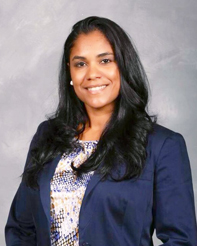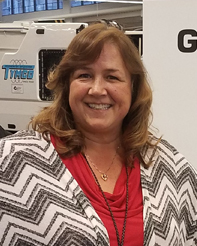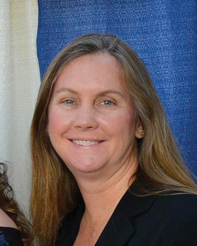
Summer School 2019
Women of the Industry—General Best Practices
Published June 2019
Editor’s Note: These entries are from some of the Women of the Industry who appeared in our November 2018 issue. They are addressing issues that community associations in Florida face, from exterior maintenance to human resources and driving safely in construction zones to effective security.
 Roof Maintenance—A Great Investment!
Roof Maintenance—A Great Investment!
By Alexandra Silva LaBarr
Have you ever asked yourself, what is the costliest building component of your facility that, if neglected, could cause significant damage to the entire structure and contents and must be replaced periodically? Have you ever looked at your roof as a piece of equipment? Your roof is just like a piece of equipment that demands regular maintenance if it is going to protect the contents of the facility and last its projected life.
It is important to have a person responsible for each building’s roofing system. This person should be familiar with the roof system, roof warranty, required maintenance, and a qualified contractor to perform the required maintenance.
It has been my experience that properly installed roof systems that have periodic routine preventative maintenance performed can far exceed the estimated life expectancy.
Getting started on an annual program could be the soundest investment you can make, considering the replacement cost of your roof and the potential liability associated with consequential interior damages. If the owner doesn’t feel qualified to perform such inspections, they should contact a qualified contractor who does this type of work on a regular basis.
For more information on Best Roofing, call (888) 892-BEST or visit bestroofing.net.
 Driving the Zone
Driving the Zone
By Connie Lorenz
Welcome to summer—a time to enjoy beautiful sunny days and random downpours on the hour, every hour. As we go into the rainy season, please be extra careful when traveling around construction zones. Our barriers are the only things that protect us from your oncoming 2000-pound vehicle, and adding rain to the mix only makes our odds worse.
New pavement or newly treated surfaces might have some friction issues if you’re not careful, and adding rain as a factor doesn’t make it any better. Hydroplaning is very easy to do in Florida even under the lightest rain conditions, and adding a construction zone on top of that can only make things worse.
Please take time to observe and drive the speed limit when going through construction zones! I like to tell people to drive the “cone zone” so that we all can make it home alive. Make sure that if you have any projects taking place during our rainy season that your contractor clearly marks the work zone with the proper barricades and directional signs to help everyone in your community get to and from places safely. Have a great summer!
For more information on Asphalt Restoration Technology Systems, call (800) 254-4732 or visit www.AsphaltNews.com.
 A Manager’s Best Tool for Success
A Manager’s Best Tool for Success
By Lisa Pinder
A professional, well-written resume is a manager’s best tool for a successful job search. The goal of the resume is to secure an interview with the board or search committee. The resume should be clear, concise, informative, honest, accurate, easy to read, and free of errors. It should include a summary of qualifications, areas of experience, education, certifications, CAM license number, and work history.
The work history section of the resume is important. It should be presented in reverse order, starting with the most recent position. Each job should include the name of the association or company, the location, your job title, and the dates of employment, including the month and year. Duties, responsibilities, projects, and accomplishments can be summarized for each position.
Effective letters of recommendation with your resume can increase your chances of securing an interview. A strong list of employment references is important to validate your resume and confirm you are a solid management candidate. Bring copies of your resume, letters, and references to the interview with you.
Community association managers who have included detailed specifics about their previous experience in their resumes have been able to remain competitive in today’s slower job market.
For more information on CondoJobs, call (561) 791-0426, email Lisa@CondoJobs.com, or visit www.CondoJobs.com.
 Understand Your Contracts and Proposals
Understand Your Contracts and Proposals
By Joanna Ribner
I think I am becoming a “serial” board member. I’m on the board of my HOA, my favorite charity, and also the condominium board where my office is located. I like to think that my experience as a vendor, often negotiating with a board of directors, has given me some insight into the way boards think.
Our office condominium currently has two bids to completely redo our landscaping. There is a $45k difference in price (and I could not get three bids because out of seven vendors called, four showed up, and only two submitted bids). Natural instinct is to take the lower bid as the number and type of plants are fairly compatible.
What I preach to boards all the time is to read the agreement and compare every aspect. The higher bid gives us priority clean up after a storm/hurricane. That is a huge benefit as most business owners want to get to their offices, assess damage, and get back up and running quickly. The less expensive company is a smaller operation and cannot give us this type of guarantee.
Make sure you understand your contracts and proposals so you can make a good decision.
For more information on Southern Chute Inc., call (866) 475-9191 or visit www.SouthernChute.com.
 Restoring Shorelines Through Environmentally Sound, Long-Lasting Solutions
Restoring Shorelines Through Environmentally Sound, Long-Lasting Solutions
By Mattie J.E. Rush
We all acknowledge that one of Florida’s most important natural resources is its extensive water system, highlighted by the Everglades, many rivers, and retention ponds that allow developers and municipalities to prevent flooding.
These waterways are subject to drastic fluctuations of water levels, resulting in significant erosion of shorelines that cause dangerous conditions and environmental damage. It is our responsibility to repair these shorelines with environmentally safe strategies that follow best management practices.
For these and other reasons, we turn to SOX Erosion Solutions since it meets these criteria with patented ShoreSOX and DredgeSOX systems. These products involve filling a large mesh-like shell with sediment and then securing it to the shoreline. Sod and other landscaping are planted through the mesh to restore a true “living shoreline.” Once complete, valuable land is reclaimed.
This system is environmentally safe and actually enhances the shorelines. The mesh system filters nitrates, phosphates, and other pollutants out of run-off, creating a healthy habitat for fish and other wildlife. Planting native vegetation also eliminates invasive plant life, another factor in improving the natural habitat. The DredgeSOX solution involves dredging sediment from lakes and rivers, thereby enhancing water flow, also an important factor in maintaining healthy water systems that are free of algae and pollutants.
Eroded shorelines are very dangerous, with unstable land causing injuries to pedestrians and workers. By restoring these shorelines through the SOX solutions, we are fortifying and restoring shorelines to their original safe and environmentally sound conditions.
For more information, visit www.lakeandwetland.com or call (941) 260-7049.
 Communication Is Key—Especially with Security
Communication Is Key—Especially with Security
By Brie Shouppe
You’ve heard that saying before, and your community’s security systems and methods are no exception. For security to be most effective, there needs to be communication flowing in at least four ways:
- The board of directors and property manager to the security provider(s)
Many companies will have different departments, and the board should ask for or have an understanding of who to contact for certain questions or requests. - The security provider(s) to the board
A security company should be in contact with a community regarding any incidents addressed or in process, servicing of equipment, upgrades, and more. - The board/CAM to residents
The residents should be aware of discussions with a security provider, especially if changes are coming or have been made. The residents should also feel comfortable knowing that communication is occurring between the community staff and security vendor. - Neighbor to neighbor
“If you see something, say something,” applies to your community, too! If you notice something suspicious happening nearby, reach out to your neighbor, community staff, or the local authorities. If you have concerns about an area of your community, share them with your board to see if something is being or can be done.
For more information on Envera Systems, call (855) 380-1274 or visit www.EnveraSystems.com.




